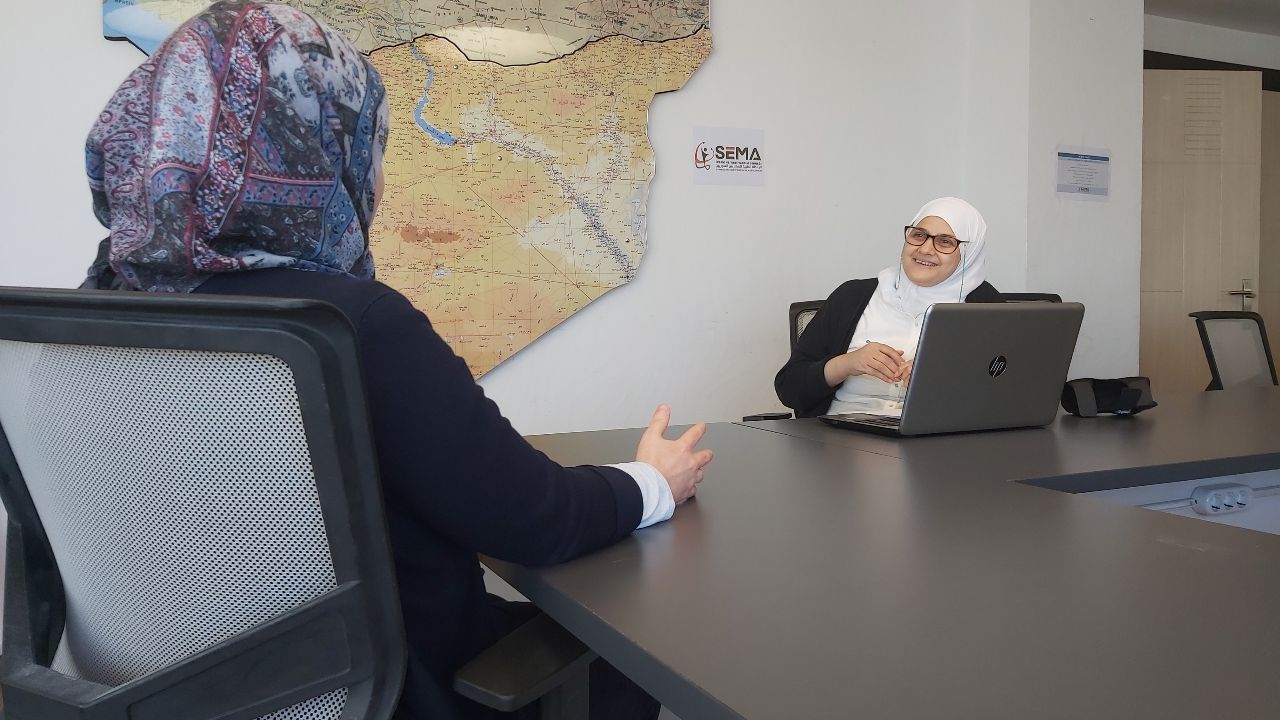Shaping the future: Our strategy for research and innovation in humanitarian response.

Shaping the future: Our strategy for research and innovation in humanitarian response.


Protracted crisis in Syria has led to the prioritisation direct objectives (outputs) and short-term objectives (outcomes) at the expense of long-term objectives (impact). This has meant there is insufficient evidence to understand the impact of Gender-based Violence (GBV) programmes in emergencies.
Our consortium (Syrian Expatriate Medical Association, Syria Bright Future, and Women Now for Development), with Elrha’s support, has studied possible innovations to better measure the impact of GBV programmes. We have done this through:
The GBV sub-cluster Turkey Hub has also shown outstanding support to this project as it paves the way to innovation within GBV programming. The sub-cluster is especially interested in the development of standardised Monitoring and Evaluation (M&E) tools and practices which is one of their 2019 work-plan priorities.
After reaching out to organisations implementing GBV programming, we identified:
Following this the consortium were able to draw out lessons learned and invited participants to brainstorm potential innovations in GBViE M&E. These innovations focused on:
Digital platforms, and electronic software that allow applications to be downloaded on smartphones will join the efforts of humanitarian actors. It will assure the safe and meaningful access of GBV survivors to services, and vice-versa to receive their direct feedback, satisfaction, or concerns.
What makes this an innovative opportunity? The GBV SC highly recommends these technology-based approaches. However, GBV SC has not yet taken any commitment in this regard. It is also of benefit to humanitarian organisations interested in standardising M&E approaches to GBV programming, but who have not yet been able to achieve this in the Syrian context. Digital tools have been tried in other similar contexts e.g. Iraq and similar sectors, from which we can take learnings and apply in the Syrian context. For example, the health cluster in Syria has a system for collecting all health information which informs best practice and programme development, which could be applied for GBV programming.
Although the concept of a success story may vary from one organisation to another or from one person to another, success stories are still considered as useful practices in evaluating GBV projects. This is true especially when those stories are found in such a complex and sensitive society socially, culturally and in terms of security.
Why this option needs an in-depth exploration? It is necessary for large-scale sharing of success stories with stakeholders and implementing partners to provide a conclusive impression of the impact of GBViE programmes. This will contribute to the positive change of attitude of humanitarian workers and the community itself about GBV projects or programmes.
Based on our learnings through this study, our recommendations and next steps for exploring these innovations include:
In addition to the above, a range of external and interrelated factors should be considered. For instance: social and cultural attitudes in the community, attitudes of humanitarian actors towards ‘gender’, efficacy of humanitarian actors, changes in social roles of men and women during the crisis, and the involvement of men in GBV programmes.
Feature photo: Kinda Al-Hourani, Consortium Project’s Researcher, with IMC. July. 2019. Credit: Rasheed Akhtarini, SEMA.

 Please upgrade your browser
Please upgrade your browser
You are seeing this because you are using a browser that is not supported. The Elrha website is built using modern technology and standards. We recommend upgrading your browser with one of the following to properly view our website:
Windows MacPlease note that this is not an exhaustive list of browsers. We also do not intend to recommend a particular manufacturer's browser over another's; only to suggest upgrading to a browser version that is compliant with current standards to give you the best and most secure browsing experience.